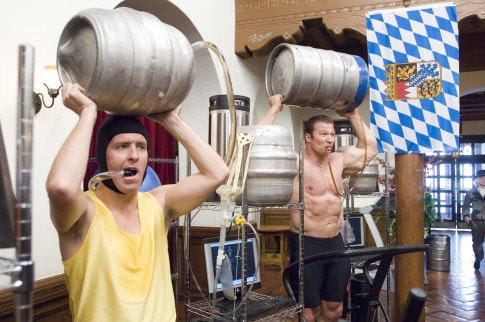 I admit that title was a tad shocking but I need to attract readership. It works for the newspapers, so I figured it would work for me. This title seems scary at first, "Short-term salivary acetaldehyde increase due
to direct exposure to alcoholic beverages as an additional cancer risk
factor beyond ethanol metabolism." One of the major off favours in beer is acetaldehyde, so we know it is present in some of the beers we drink. We also know that there tends to be more acetaldehyde present in lagers. Anyone who has judged a lager
category has gotten a mouthful of green apple. Acetaldehyde is a known risk factor for cancer. This compound in beer as associated with DNA damage and impaired DNA repair. So will drinking beer put you at risk of cancer? The answer is yes, but it is not as bad as you think.
I admit that title was a tad shocking but I need to attract readership. It works for the newspapers, so I figured it would work for me. This title seems scary at first, "Short-term salivary acetaldehyde increase due
to direct exposure to alcoholic beverages as an additional cancer risk
factor beyond ethanol metabolism." One of the major off favours in beer is acetaldehyde, so we know it is present in some of the beers we drink. We also know that there tends to be more acetaldehyde present in lagers. Anyone who has judged a lager
category has gotten a mouthful of green apple. Acetaldehyde is a known risk factor for cancer. This compound in beer as associated with DNA damage and impaired DNA repair. So will drinking beer put you at risk of cancer? The answer is yes, but it is not as bad as you think.In this study, students were given various alcoholic beverages to sample. These were sampled via the wine tasting method, swish, hold and spit. The beverages ranged from beer, vodka, wine to grape marc spirit. Oddly beer contained the lowest amount of acetaldehyde of all beverages except for vodka. I'm not sure what grape marc spirit is but I plan to avoid that crap, it contained the most acetaldehyde by far.
Acetaldehyde is formed in the body by liver metabolism and mouth or colonic bacteria. This was news to me. It also explains why poor dental hygiene is associated with higher risks of certain forms of stomach cancer. Back to our beverage spitting, cancer developing subjects. After the swish and spit, levels of acetaldehyde were measured in the saliva over the next 10 minutes. This method would allow bacteria present in the mouth produce acetaldehyde.
Acetaldehyde levels rose and faded over 10 minutes of saliva sampling. As predicted, initial acetaldehyde levels in beverages we responsible for the first 30 seconds of exposure. After that, it was due to the bacterial modification of alcohol content. This was evident when comparing grape marc spirit and vodka. Levels of acetaldehyde of vodka are unmeasureable where as levels in grape marc were 15851 uM. For comparison beer only contained 210 uM. The makes sense, in beer acetaldehyde is considered to be a flaw and avoided. After ten minutes acetaldehyde saliva levels of those who sampled beer were undetectable while vodka and grape merc levels of acetaldehyde were similar. So what does this mean for beer drinkers? Beer drinking is a risk factor for cancer, but not as much as spirits due to beer's lower alcohol content. Even in bad lagers where green apple is noticeable, their acetaldehyde levels would be lower than grape merc spirit or cider.

3 comments:
Apparently it's also what helps cause hangovers.
Yes, yes is it
http://allaboutbeer.com/article/anatomy-of-a-hangover/
Always good to know my beer isn't giving me cancer to quickly.
Post a Comment